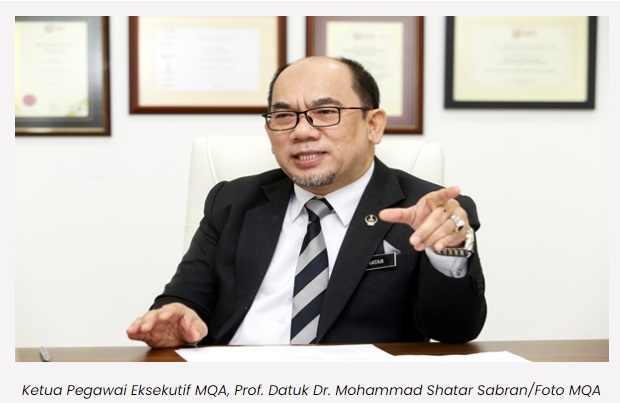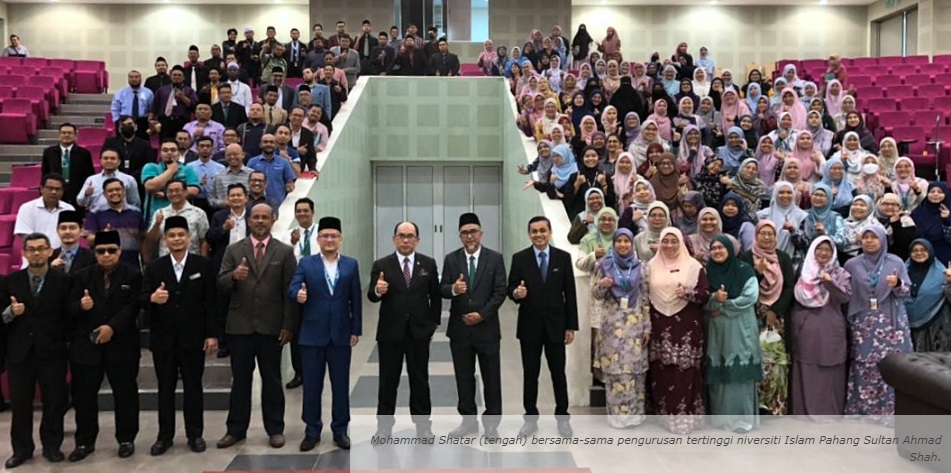|
Quality is the measurement of the level and functionality of a product or service according to a standard that has been set. The main challenge of an organization is to produce a product or service that reaches a level of quality, meets customer expectations and occupies the space and needs of the current market. The practice of quality culture for most organizations is based on the International Organization for Standardization (ISO). ISO is an independent and independent non-governmental organization, consisting of a combination of various quality recognition organizations from around the world established in 1947, based in Geneva, Switzerland. As of this writing, ISO has developed and published more than 24,500 international standards covering aspects of service management related to technology, economics, environment, manufacturing and production. ISO is made up of 167 countries, with each country's membership represented by one organization and Malaysia represented by the Malaysian Standards Department. In Malaysia, almost all universities implement the Quality Management System (ISO 9001:2015) in the main service processes at their respective Responsibility Centers (PTJ). Universiti Putra Malaysia (UPM) is a university that implements a comprehensive certification quality management system, which includes all the main processes covering teaching and learning; research and innovation; professional services; as well as support services (UPM Quality Assurance Center, 2023).
|
|
Quality Management Systems or QMS is a process approach for an organization to function well and meet the needs of customers or stakeholders. ISO 9001 is a set of international standards that ensure the quality management of an organization is always at an optimal level. The Government of Malaysia through Public Administration Progress Circular Number 2 of 1996, has ordered the implementation of MS ISO 9000 in all government agencies, before the end of 2000.
Starting in 2000 until now, UPM has used a quality management standard which is ISO 9001 - Quality Management System (QMS). From 2013 until now, an information security management standard has been included, which is ISO/IEC 27001 - Information Security Management System (ISMS) to improve the quality of the service ecosystem at UPM. Then in 2014, a new standard which is ISO 14001 - Environmental Management System (EMS) was also included; however, in 2020, the use of this standard has been terminated after it was announced that the first standard, which is QMS, is able to meet most of the requirements of the scope of sustainability and quality assurance of environmental management at UPM.
At UPM, the history of QMS begins with the Faculty of Veterinary Medicine (FPV) which was awarded with MS ISO 9001:2000 certification in July 2000. FPV became the first higher education institution in the country to receive comprehensive certification in teaching and professional services. This initiative has been widely disseminated to 28 other PTJs at UPM. Throughout the implementation period of the QMS, many increases in the scope of the QMS as well as the participation of PTJ have been recorded. The biggest success for UPM was when it successfully obtained MS ISO 9001:2008 certification on 27 December 2011, by achieving the main performance indicator which is towards QMS certification. Until today, QMS has been implemented at UPM for 23 years. Throughout this period, the practice of quality through QMS should have been cultured by all UPM employees. This appreciation of QMS can be seen through UPM's success in improving the quality of services, academics and accreditation from year to year. In 2017, UPM successfully won the SIRIM Quality Award which is awarded to the best organization in Malaysia in recognition of the achievement of quality management levels that meet national and international standards.
UPM's success in maintaining a QMS certification for 23 years with a scope that includes almost all processes at UPM has raised the question of whether QMS through certification with SIRIM QAS International Sdn. Bhd., still needs to be maintained or should be terminated. This question was raised in the 2022 UPM ISO Management Review Meeting (MKSP) on 20 September 2022 with a further view that UPM should be able to move to a unique and more consistent internal quality assurance system framework. This article reports the findings of a survey for the perception of UPM employees towards the implementation of QMS at UPM.
|




























